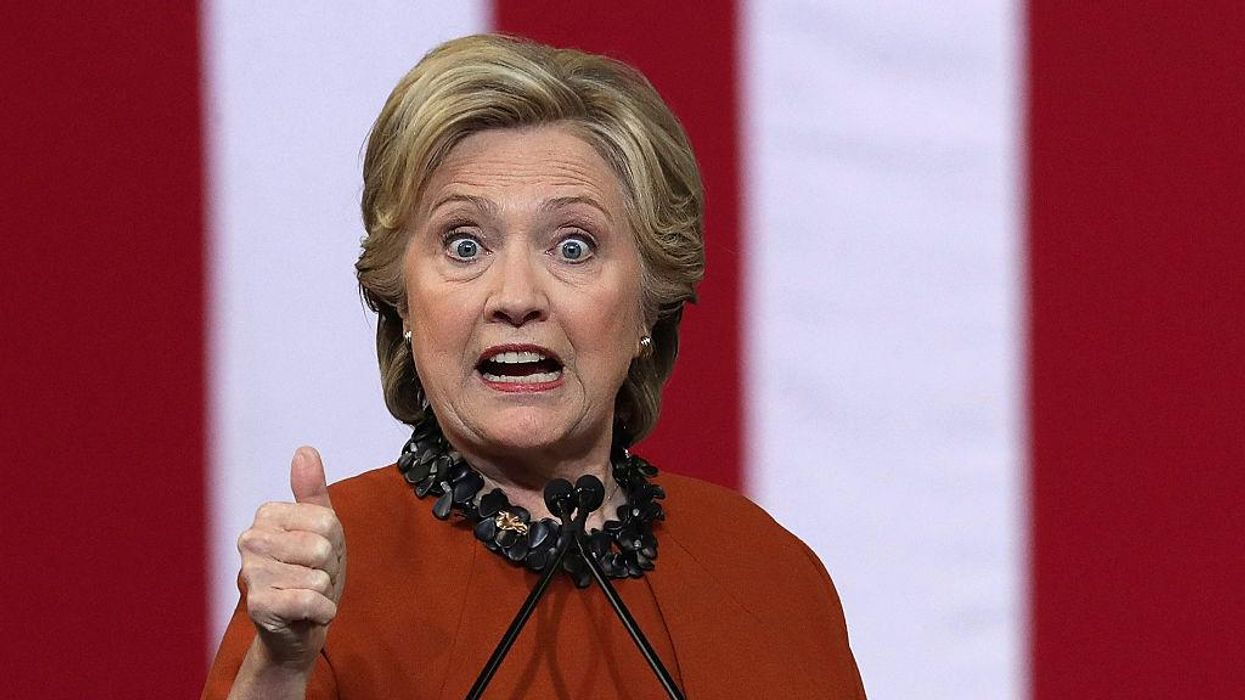
Photo by Alex Wong/Getty Images

The Washington Post, whose journalists were awarded for peddling the discredited "Russia Hoax" narrative, has admitted that so-called Russian trolls "had no measurable impact in changing minds or influencing voter behavior" ahead of the 2016 presidential election.
What prompted the Post to call into question the central tenet of the narrative advanced by liberal media outlets for years was a study led by the New York University Center for Social Media and Politics.
A study published on Jan. 9 in the journal Nature Communications concluded that "it would appear unlikely that the Russian foreign influence campaign on Twitter could have had much more than a relatively minor influence on individual-level attitudes and voting behavior."
According to the study, it is unlikely that a handful of so-called Russian trolls exerted significant influence for these four reasons:
The thrust of the report is well captured by this one conclusion: "The relationship between the number of posts from Russian foreign influence accounts that users are exposed to and voting for Donald Trump is near zero (and not statistically significant)."
Josh Tucker, co-director of the New York University Center for Social Media and Politics and one of the study's authors, told the Washington Post that the Russian interference narrative "got way overhyped."
"Now we’re looking back at data and we can see how concentrated this was in one small portion of the population, and how the fact that people who were being exposed to these were really, really likely to vote for Trump," said Tucker, adding that "we can’t find any relationship between being exposed to these tweets and people’s change in attitudes."
Despite the study and Tucker's suggestion, the Washington Post appeared keen to salvage credibility, suggesting that the "study doesn't go so far as to say that Russia had no influence on people who voted for President Donald Trump."
The Post contended that the study examined neither possible influence campaigns on Facebook nor the impact of alleged Russian hack-and-leak operations, although there has been suggestion elsewhere that these findings may be generally applicable.
While Russian trolls were evidently ineffective, special counsel Robert Mueller indicated that they nevertheless "had a strategic goal to sow discord in the U.S. political system, including the 2016 U.S. presidential election."
According to Mueller's indictment against the Internet Research Agency and various foreign nationals, filed Feb. 16, 2018, "Defendants posted derogatory information about a number of candidates, and by early to mid-2016, [trolls'] operations included supporting the presidential campaign of then-candidate Donald J. Trump ('Trump Campaign') and disparaging Hillary Clinton."
The notion that Russian trolls may have had a significant impact on the 2016 presidential election was pushed by a variety of mainstream liberal news publications.
Here is a short list of examples of articles that appear to exaggerate the impact and threat of Russian trolls:
Democrats and their allies parroted this claim. For instance, failed presidential candidate Hillary Clinton said that Russian meddling in the 2016 election was an "act of aggression" that proved a "more effective theft even than Watergate."
Clinton told Recode in 2017, "Through content farms, through an enormous investment in falsehoods, fake news, call it what you will — lies — the other side was using content that was just flat-out false and delivering it both above and below the radar screen."
This supposed campaign was "connected, as we now know, to a thousand Russian agents [and] connected to the bots, which are just out of control," said Clinton, adding that "Russians ran an extensive information war campaign against my campaign to influence voters in the election."
The head of PropOrNot, a site that claims to expose Russian propaganda, told the Washington Post anonymously in 2016 that the "way that this propaganda apparatus supported Trump was equivalent to some massive amount of a media buy. ... It was like Russia was running a super PAC for Trump’s campaign. . . . It worked."
The success of this narrative in insinuating Russian support for Trump, thereby buttressing now-discredited claims that members of the Trump administration colluded with Russia, apparently warranted its continued use ahead of the 2020 election.
CNN Business ran an article entitled, "Facebook: Russian trolls are back. And they’re here to meddle with 2020," on Oct. 22, 2019.
The article alleged that "the Russian trolls who used social media to interfere in the 2016 election employed a similar tactic, going after Hillary Clinton from the right and also trying to spread a perception on the left that Clinton was not liberal enough and that liberals and African Americans especially shouldn’t bother voting for her."
In a similar vein, the New York Times published a piece on Jan. 10, 2020, entitled "Chaos Is the Point’: Russian Hackers and Trolls Grow Stealthier in 2020," hyping National Security Agency and foreign claims that the "Russians were back and growing stealthier" and "millions of Americans are still primed to swallow fake news."
Rich Lowry, writing in the New York Post, suggested that this "fevered notion fueled Democratic 2016 election denialism; catalyzed a federal investigation into Trump that was senseless and disruptive; created a cottage industry of supposed disinformation experts; pushed social-media companies into exercising rank political censorship in the name of fact-based content moderation; led to the suppression of the Hunter Biden laptop story; and distorted the work of the FBI."